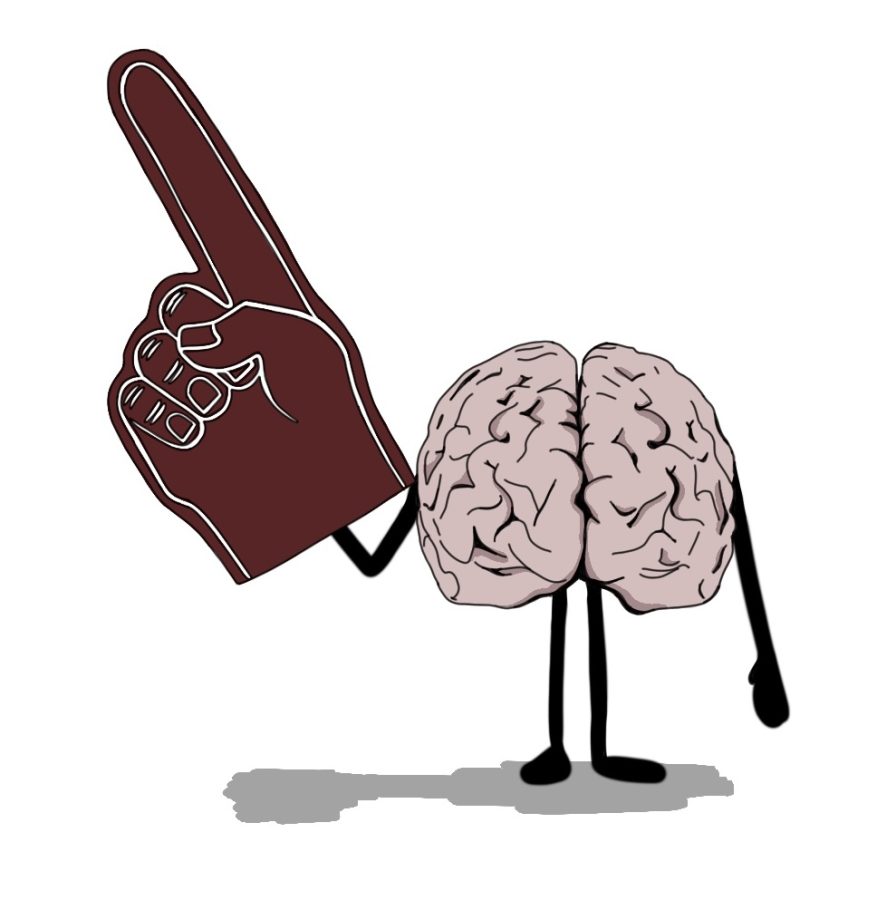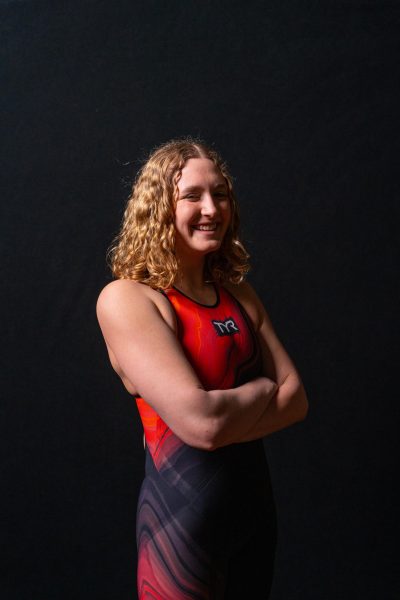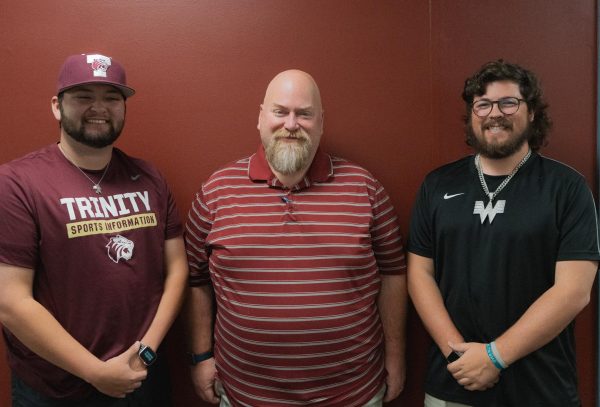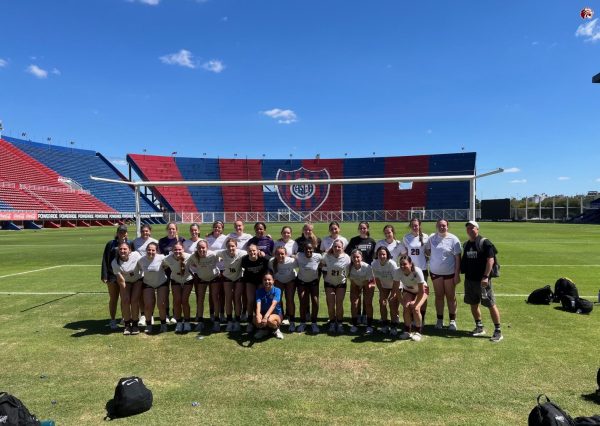The hardest battle
Trinity’s newest organization, The Hidden Opponent, prioritizes mental health for athletes
In a moment that stunned the world, gymnastics superstar Simone Biles stepped up for a seemingly routine run at the vault during the 2020 Tokyo Olympics. While in the air, she experienced the “Twisties” — a phenomenon that results in a gymnast getting lost in the air in relation to the ground below. After hitting the ground hard on a rough landing, Biles walked off the mat. Her week-long mental health break caused a massive shift in gymnastics and the world of athletics. Even though attention to mental health in society has blossomed in recent years, the athletic world has seemingly been left behind up to now. Biles’ exit from the Olympics highlighted that athletes are still humans, no matter how high we place them on a pedestal.
The increased focus on mental health in sports has made its way to Trinity, thanks to the organization The Hidden Opponent. Founded by Victoria Garrick following a 2017 TED Talk, The Hidden Opponent is a group that aims to “create a strong community and unified platform for the many student-athletes who face mental issues,” according to their website. The non-profit focuses on raising awareness for mental health at the collegiate level, focusing on student-athletes. For some, college is stressful enough with papers, assignments and trying to balance a job. Throwing the stress of an NCAA athletic program into the mix can sometimes be too much.
The group has been brought to the Trinity University campus thanks to Kai McClelland, a first-year student-athlete with the Cross Country and Track teams who founded a Trinity-based chapter of the organization. A runner since she was just 8 years old, McClelland wrote an article in 2021 with the organization detailing her experiences juggling mental health and athletics.
“I personally had some experiences with mental health issues that led to physical health issues, and so that was something that I was very inspired to write, and I published it with [The Hidden Opponent],” McClelland said.
The Trinity community was supportive, with both current and former students speaking up for the cause.
“I had a few alumni and current students reach out and say, ‘Hey, I love this cause, and we want to see more of it at Trinity,’” McClelland said.
After applying for the “Campus Captains” program, she began setting up the chapter on campus at the start of the semester.
The goal of The Hidden Opponent is primarily to help reduce the stigma surrounding athlete mental health— something that has been a significant issue for years. As junior basketball player Maggie Shipley said, the mental side of the game is an important one.
“I feel that [mental health] has always been an important thing, but it’s becoming more of a topic in athletics, especially because the mental side of the game is really half the battle. You can be completely physically prepared and skilled, but if you’re not mentally there, you’re not going to succeed,” Shipley said.
The Trinity chapter has already gotten multiple athletes under the umbrella from every class, working to raise awareness for everyone.
“The focus is to empower athletes to take ownership of mental health awareness and unite against mental stigma,” McClelland said. “A lot of it is raising awareness. There are a lot of operations on social media in order to do that. It’s also about allowing athletes to bring the cause to their friends and [allowing] everyone to be able to take part.”
The organization isn’t new to college campuses and has a large following throughout the nation. When Shipley heard that The Hidden Opponent was coming to Trinity, it was easy to support.
“It’s so important that we’re starting The Hidden Opponent here because mental health is a big piece of success. It’s really important that it’s being talked about and people feel comfortable on teams bringing it up. The stigma around mental health makes it harder when people feel like they’re dealing with it alone.”
In her 2021 article, McClelland talks about some mental health struggles she faced in high school, including a hospitalization for debilitating chronic illness related to stress in 2019. Shipley, too, described how mental health could be an issue for collegiate athletes.
“I would say my transition from high school to college athletics was shocking. The demands definitely did take a toll on my mental health, but I feel that with time I’ve learned to navigate that. Knowing where I was at freshman year, I don’t want other athletes to feel like what they’re experiencing isn’t normal, and if they need help, there should be resources that they can go to. That’s what I love about The Hidden Opponent. It’s a resource where athletes can relate to other people about what they’re going through.”
Though athletes are the primary focus of The Hidden Opponent, mental health is a battle that everyone goes through. McClelland hopes that the organization can grow into a club that helps not only athletes but also the university.
“One of the main things that we want to do is promote the conversation of mental health awareness at Trinity and create a campus culture of mental health support,” McClelland said. “Part of that is in raising awareness but also in allowing athletes to connect forces, join together and build a community around the cause. When someone’s coming in as a recruit or even as a veteran athlete, they know that they’re supported in whatever mental health struggles they’re going through.”
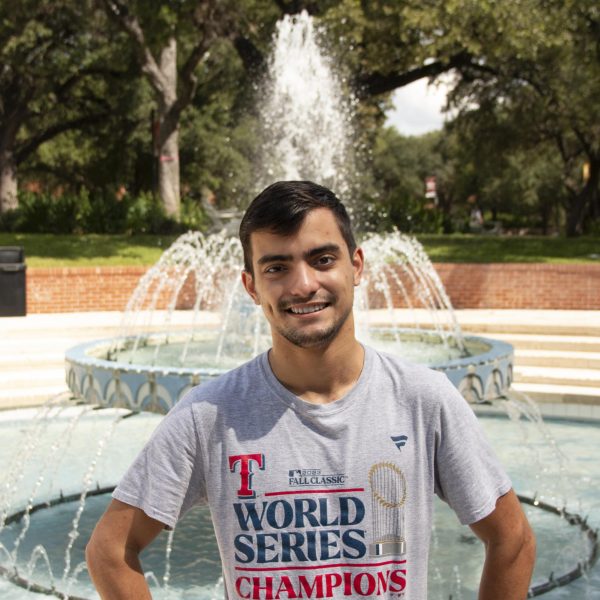
Hey! My name is Caleb Reed, and this will be my second year as the sports editor! Unfortunately, I'm a senior, so this will be my final year, but I've...

